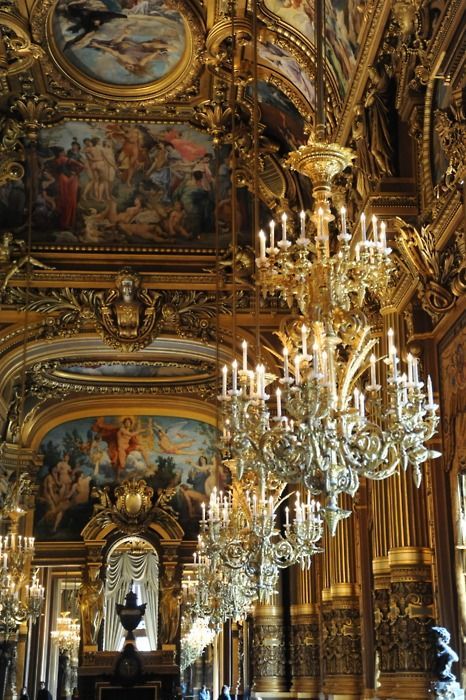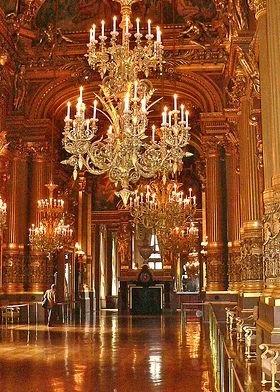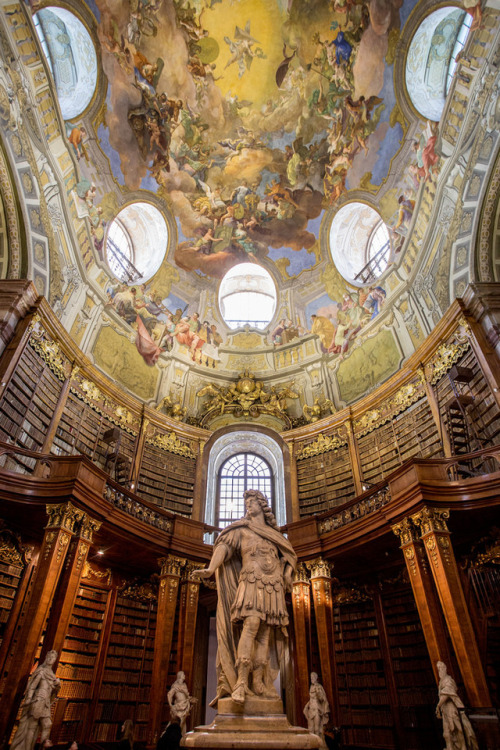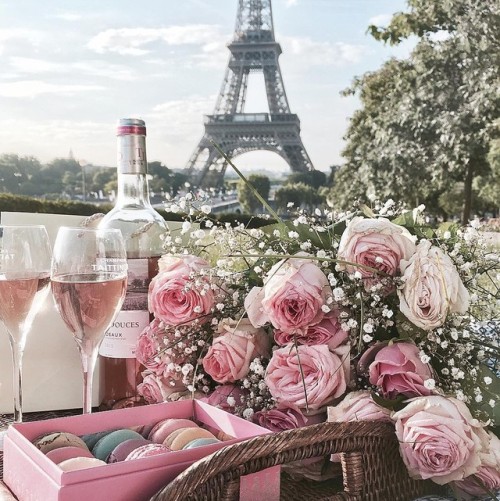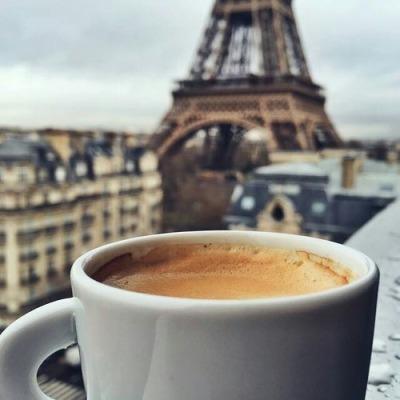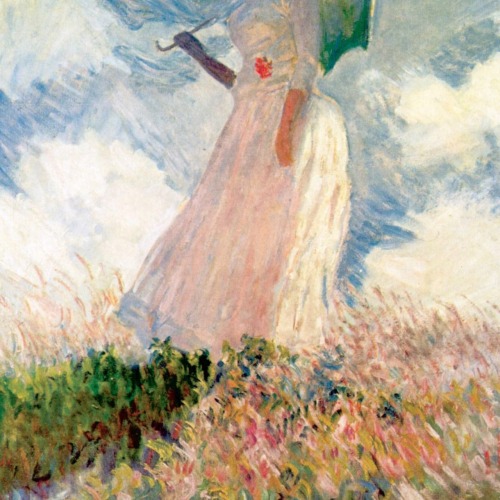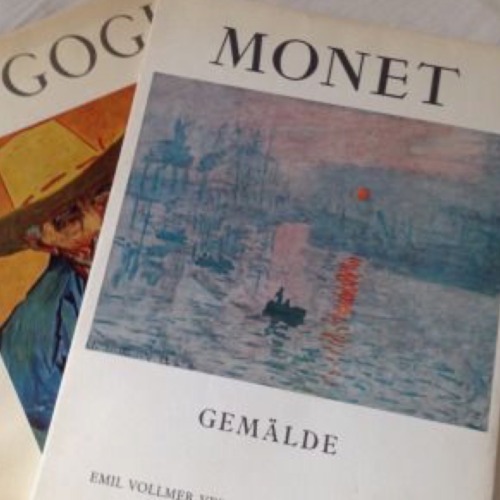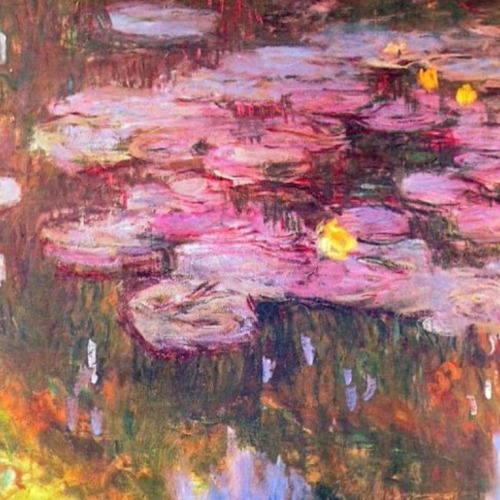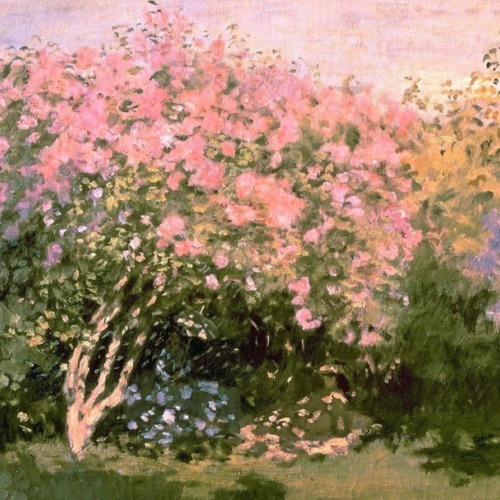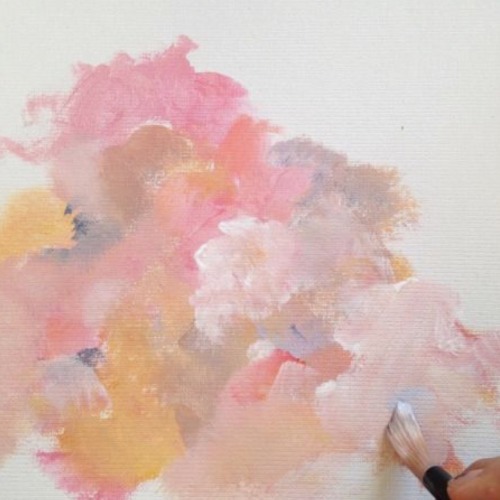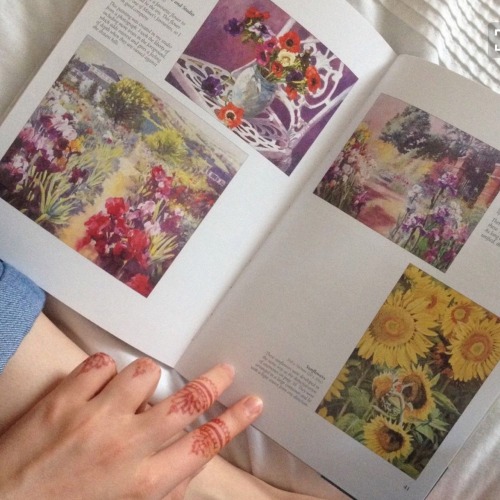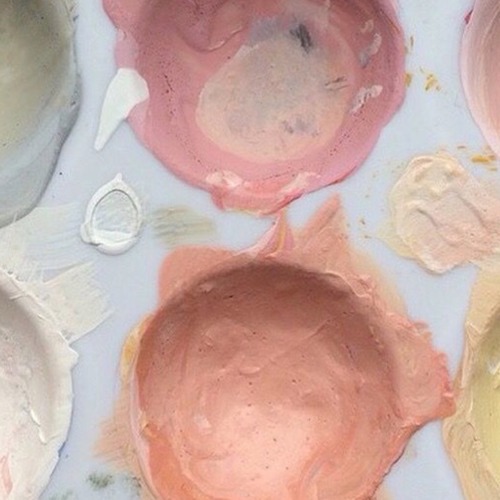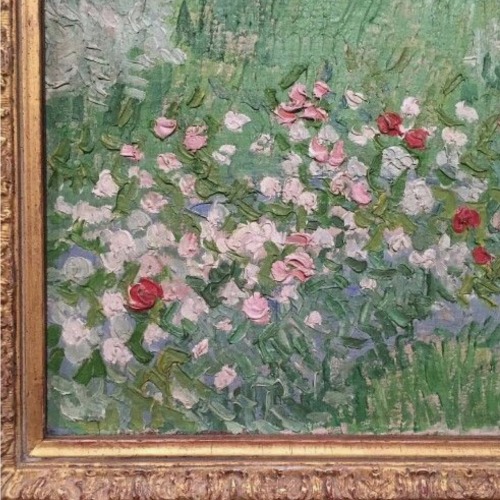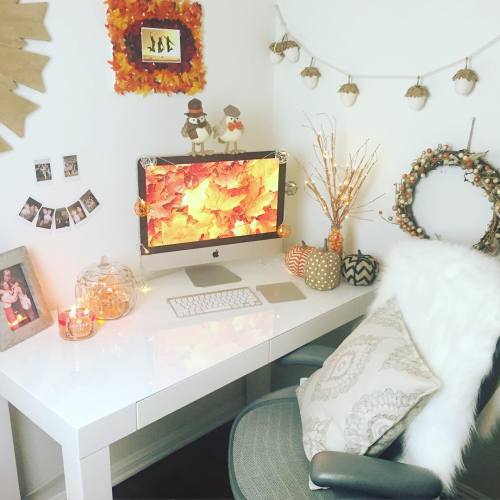Emma. 27. A blog for Classic Literature, language learning, flowers, and aesthetic
117 posts
Latest Posts by theblogofwildfellhall - Page 2
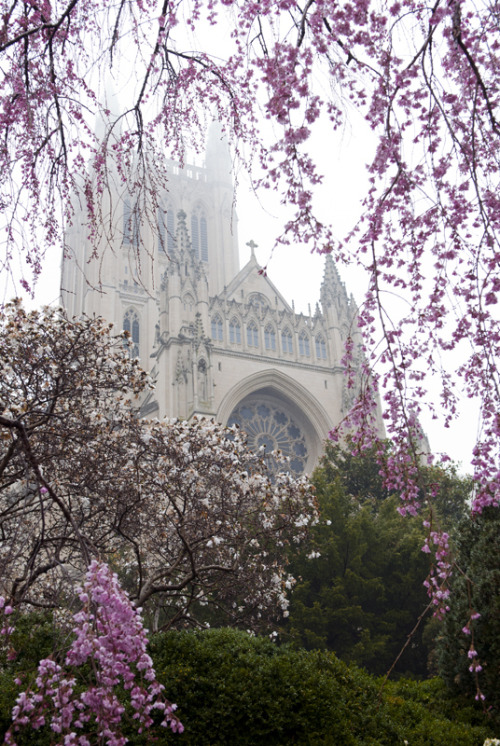
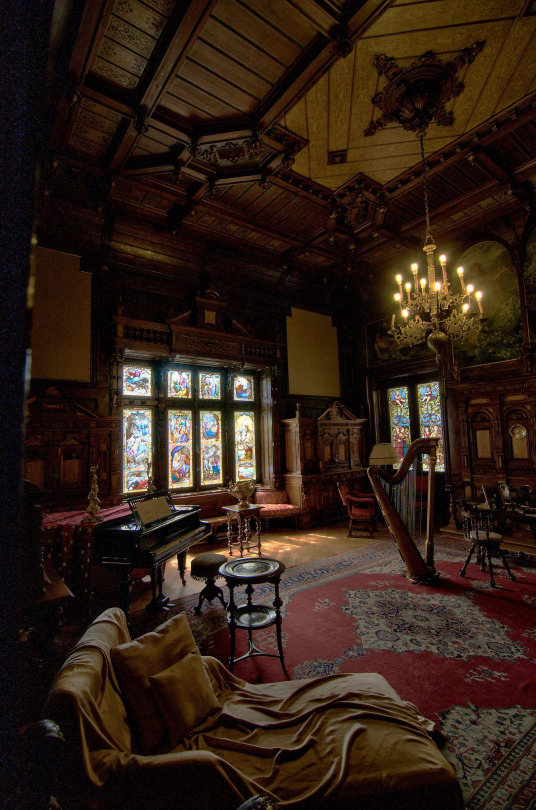
Peleș Castle in Sinaia, Romania.
I just uploaded a cozy (yet spooky!) haunted manor ambience, my friends! Hope you enjoy, and happy Halloween!


And this year for Halloween I am a lazy pirate
Rrrrrrr
french: school vocabulary 📚
♡ Basics:
une école - school (in general), grade school
un écolier, une écolière - grade school student
un collège - middle school, junior high
un collégien, une collégienne - middle school student
un lycée - high school
un lycéen, une lycéenne - high school student
une université - college, university
un étudiant, une étudiante - college student
un professeur, un/e prof (informal)* - teacher
*In France, the word professeur is always masculine, even if the teacher is a woman.
♡ School Years and Ages:
Cours Préparatoire (CP) = 6 years old
Cours Elémentaire (CE1) = 7 years old
Cours Elémentaire (CE1) = 8 years old
Cours Moyen (CM1) = 9 years old
Cours Moyen (CM2) = 10 years old
Sixième = 11 years old
Cinquième = 12 years old
Quatrième = 13 years old
Troisième = 14 years old
Seconde = 15 years old
Première = 16 years old
Terminale = 17 years old
♡ Equipment - Le Matériel
un bureau - desk
un pupitre - student desk
un cahier - notebook
une calculatrice - calculator
un carnet - notebook
une carte - map
un classeur - binder
une craie - chalk
un crayon - pencil
des devoirs (m) - homework
un dictionnaire - dictionary
une gomme - eraser
le rétroprojecteur - overhead projector
un livre - book
la trousse - pencil case
le papier - paper
une feuille de papier - piece of paper
recto verso - front and back, both sides
un sac à dos - backpack
un stylo - pen
un tableau - chalkboard
le cartable - school bag
♡ The School:
classroom - une salle de classe
library - la bibliothèque
librarian - le/la documentaliste
hall - le hall
staff room - une salle des profs
cloakroom - le vestiaire
toilets - les toilettes
laboratory - un laboratoire
workshop - un atelier
gym - le gymnase
the playground - la cour de récréation
sports field - le terrain de sports
headmaster - le directeur
headmistress - la directrice
secretary - la secrétaire
dining hall - la cantine
corridor - le couloir
caretaker - le concierge
school yard - la cour
♡ Subjects - Les Matières
English - l'anglais
Mathematics - les mathématiques
Modern Languages - les langues vivantes
French - le français
Spanish - l'espagnol
German - l'allemand
Greek - le grec
Latin - le latin
Physical Science - les sciences physiques
Physics - la physique
Chemistry - la chimie
Biologie - la biologie
Technology - le travail manuel éducatif (TME)
Woodwork - le travail sur bois
Art - le dessin
Computing (IT) - l'informatique
Music - la musique
Geography - la géographie
History - l'histoire
Physical Education (PE) - l'éducation physique et sportive (EPS)
Religious Education (RE) - l'instruction religieuse
♡ School Life
lesson - un cours
pupil - une élève
to spell - épeler
to learn - apprendre
to discuss - discuter
essay - la rédaction
school uniform - l’uniforme
bell - le sonnerie
homework - les devoirs
timetable - un emploi de temps
to take notes - prendre des notes
term/semester - un trimestre
detention - le retenue
study period - l'étude
un examen - test
♡ Classroom activities and instructions
lever la main - to put one’s hand up
poser une question - to ask a question
écrivez - write down
écoutez - listen to
regardez - look at
regardez attentivement - look closely
lisez - read
lisez attentivement - read carefully
…le texte - the text
…l'enregistrement - the recording
…la conversation - the conversation
…la vidéo - the video
…l'écran - the screen
ouvrez - open
…votre cahier - your workbooks
…votre livre - your (text) books
…le manuel - the textbook
cochez la bonne réponse - tick the right answer
je vais vous donner un devoir - I’m going to give you some homework
c'est pour - it’s for
il faut le rendre - you’ve to hand it in
…demain - tomorrow
…la semaine prochaine - next week
…après les vacances - after the holidays
allez, c'est parti! - come on, let’s start!
faites moins de bruit, s'il vous plaît! - quieten down, please!
taisez-vous! - be quiet!
nature in french 🌿
le paysage landscape
la plaine plane
le désert desert
le bois woods
la forêt forest/woods
la forêt tropicale rainforest
le pré meadow
le marais swamp
la prairie grassland
le ruiseau stream
le lac lake
la cascade waterfall
le geyser geyser
la falaise cliff
la côte coast
le récif de corail coral reef
l’esturaire estuary
la montagne mountain
la rivière river
la colline hill
la gorge gorge
le plateau plateau
la caverne cave
la vallée valley
la terre the world/land
le monde the world
l’arbre tree
la feuille leaf
l’océan ocean
la mer sea
le fleuve river
le glacier the glacier
l’étang pond
la plage beach
la marée tide
la jungle jungle
la baie bay
un arbuste a bush
la nature nature
l'envrionnement the environment
le climat climate
fondre to melt
geler to freeze
réduire to reduce
réutiliser to reuse
recycler to recycle
le recyclage recycling
une ressource a resource
naturel/naturelle natural
renouvelable renewable
l'atmosphère (m.) the atmosphere
la pollution pollution
polluer to pollute
la couche d'ozone the ozone layer
l'eau (f.) water
le sol soil
semer to plant
un nuage a cloud
une tempête a storm
gaspiller to waste
l'oxygène (f.) oxygen
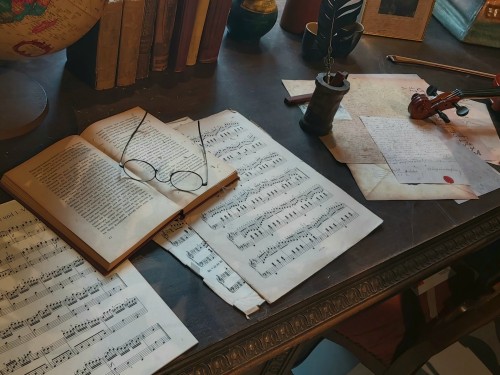
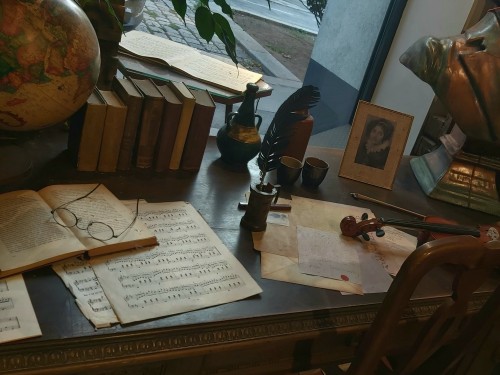
Fragments of a Beethovenfest deko I found at a thrift store in Vienna - 2020
how to sound more like a french native speaker 🌿
The following points are 5 classic French conversational techniques and mannerisms to help you sound just a bit more truly français:
1. The tactical use of bah
Fairly difficult to translate, the French bah is used rather regularly and can make your speech pattern sound very authentic.
In answer to an obvious question perhaps:
“Tu aimes bien la pizza?” (Do you like pizza?)
“Bah oui, bien sur!” (Well, yes, of course!)
Or something like the following:
“Tu adores le brocoli?” (Do you love broccoli?)
“Bah non! Je déteste!” (No, I hate it!)
Or as a deep, elongated syllable to fill gaps while you think:
“Qu’est-ce que tu fais le weekend?” (What are you doing on the weekend?)
“Baaaaaahh, en fait je ne sais pas encore.” (Well…actually I don’t know yet)
2. Add quoi to the ends of sentences
This one is also not easy to translate, but it would be the French equivalent of “whatever” or “innit.” So, you might imagine that it shouldn’t be used when talking formally, but it’s used often in casual conversation and can perfectly round off a sentence.
“C’est quoi, ça?” (What is that?)
“Euuh, je ne sais pas exactement mais je pense que c’est une sorte de nourriture, quoi.” (Um, I’m not really sure but I think it’s a type of food or whatever.)
3. Using eh, ah and hein like there’s no tomorrow
Whether it’s to fill space while you think or to provoke a response, these elongated vowels are very useful when speaking French. They can be heard very often in conversation.
For example, in English we add “don’t you?”/ “aren’t you?”/ “isn’t it?” to the end of statements to toss the conversational ball back into the other person’s court. The French will simply say “hein?”
“Il fait beau aujourd’hui hein?” (It’s nice weather today isn’t it?)
Try it with raised eyebrows for added French effect.
4. Sufficient use of voilà here, there and everywhere
The slangy English phrases “so, yeah” or “so, there you go” would probably be best translated into French as “voilà.”
When you can’t think of anything else to say at the end of a sentence, you can’t go wrong with a voilà. Sometimes even two. Voilà voilà.
5. Not forgetting the classic French shrug
In response to a question to which you don’t know the answer, respond the French way with an exaggerated shrug, raised eyebrows and add a “baaah, je sais pas, moi!” for good measure.
Classic Horror Novels That Are NOT Frankenstein Or Dracula
The Vampyre by John William Polidori
Carmilla by J. Sharidon le Fanu
The Flowers Of Evil by Charles Baudelaire
Perfume: The Story Of A Murderer by Patrick Suskind & translated by John E. Woods
The Strange Case Of Doctor Jekyll & Mister Hyde by John Louis Stevenson
Complete Stories & Poems by Edgar Allen Poe
The Picture Of Dorian Grey by Oscar Wild
The Turn Of The Screw by Henry James
The Island Of Doctor Moreau by H.G. Wells
The Hounds Of Baskerville by Sir Arthur Conan Doyle
The Monk by Matthew Gregory Lewis
Jane Eyre by Charlotte Bronte
The Legend Of Sleepy Hollow by Washington Irving
Uncle Silas by J. Sheridan le Fanu
Melmoth The Wanderer by Charles Robert Maturin
The Woman In White by Wilkie Collins
*Note these are all novels published BEFORE the 1900s -- I've got a whole other list of those. If you're interested, hmu.
Le Petit Prince - quotes 🌠
Le Petit Prince (1943) is a novel by Antoine de Saint Exupéry, translated into English as The Little Prince.
🌟 1. Les grandes personnes ne comprennent jamais rien toutes seules, et c’est fatigant, pour les enfants, de toujours et toujours leur donner des explications.
Grown-ups never understand anything by themselves, and it is tiresome for children to be always and forever explaining things to them.
🌟 2. Quand le mystère est trop impressionnant, on n’ose pas désobéir.
When a mystery is too overpowering, one dare not disobey.
🌟 3. La preuve que le petit prince a existé c’est qu’il était ravissant, qu’il riait, et qu’il voulait un mouton. Quand on veut un mouton, c’est la preuve qu’on existe.
The proof that the little prince existed is that he was charming, that he laughed, and that he was looking for a sheep. If anybody wants a sheep, that is a proof that he exists.
🌟 4. Mais les graines sont invisibles. Elles dorment dans le secret de la terre jusqu’à ce qu’il prenne fantaisie à l’une d’elles de se réveiller…
But seeds are invisible. They sleep deep in the heart of the earth’s darkness, until some one among them is seized with the desire to awaken.
🌟 5. Il ne faut jamais écouter les fleures. Il faut les regarder et les respirer. La mienne embaumait ma planète, mais je ne savais pas m’en réjouir.
One never ought to listen to the flowers. One should simply look at them and breathe their fragrance. Mine perfumed all my planet. But I did not know how to take pleasure in all her grace.
🌟 6. Tu as des cheveux couleur d’or. Alors ce sera merveilleux quand tu m’aura apprivoisé! Le blé, qui est doré, me fera souvenir de toi. Et j’aimerai le bruit du vent dans le blé…
You have hair that is the color of gold. Think how wonderful that will be when you have tamed me! The grain, which is also golden, will bring me back the thought of you. And I shall love to listen to the wind in the wheat…
🌟 7. On ne connaît que les choses que l’on apprivoise, dit le renard. Les hommes n’ont plus le temps de rien connaître. Il achètent des choses toutes faites chez les marchands. Mais comme il n’existe point de marchands d’amis, les hommes n’ont plus d’amis. Si tu veux un ami, apprivoise-moi!
“One only understands the things that one tames,” said the fox. “Men have no more time to understand anything. They buy things all ready made at the shops. But there is no shop anywhere where one can buy friendship, and so men have no friends any more. If you want a friend, tame me…”
🌟 8. Le langage est source de malentendus.
Words are the source of misunderstandings.
🌟 9. Voici mon secret. Il est très simple : on ne voit bien qu’avec le coeur. L’essentiel est invisible pour les yeux.
And now here is my secret, a very simple secret: It is only with the heart that one can see rightly; what is essential is invisible to the eye.
🌟 10. C’est le temps que tu as perdu pour ta rose qui fait ta rose si importante.
It is the time you have wasted for your rose that makes your rose so important.
🌟 11. Tu deviens responsable pour toujours de ce que tu as apprivoisé. Tu es responsable de ta rose…
You become responsible, forever, for what you have tamed. You are responsible for your rose…
🌟 12. - Les enfants seuls savent ce qu’ils cherchent, fit le petit prince. Ils perdent du temps pour une poupée de chiffons, et elle devient très importante, et si on la leur enlève, ils pleurent…
“Only the children know what they are looking for,” said the little prince. “They waste their time over a rag doll and it becomes very important to them; and if anybody takes it away from them, they cry…”
🌟 13. Ce qui embellit le désert, dit le petit prince, c’est qu’il cache un puits quelque part…
“What makes the desert beautiful,” said the little prince, “is that somewhere it hides a well…”
🌟 14. Dessine-moi un mouton!
Draw me a sheep!
🌟 15. Quand on a terminé sa toilette du matin, il faut faire soigneusement la toilette de la planète.
When you’ve finished getting yourself ready in the morning, you must go get the planet ready.
🌟 16. J'aime bien les couchers de soleil. Allons voir un coucher de soleil…
I am very fond of sunsets. Come, let us go look at a sunset…
🌟 17. On ne sait jamais!
“One never knows!”
🌟 18. Il faut exiger de chacun ce que chacun peut donner, reprit le roi. L'autorité repose d'abord sur la raison. Si tu ordonnes à ton peuple d'aller se jeter à la mer, il fera la révolution. J'ai le droit d'exiger l'obéissance parce que mes ordres sont raisonnables. Alors mon coucher de soleil ? rappela le petit prince qui jamais n'oubliait une question une fois qu'il l'avait posée. Ton coucher de soleil, tu l'auras. Je l'exigerai. Mais j'attendrai, dans ma science du gouvernement, que les conditions soient favorables.
“One must command from each what each can perform,” the king went on. “Authority is based first of all upon reason. If you command your subjects to jump into the ocean, there will be a revolution. I am entitled to command obedience because my orders are reasonable.” “Then my sunset?” insisted the little prince, who never let go of a question once he had asked it. “You shall have your sunset. I shall command it. But I shall wait, according to my science of government, until conditions are favorable.”
🌟 19. C'est véritablement utile puisque c'est joli.
It is truly useful since it is beautiful.
🌟 20. ‘Où sont les hommes ?’ reprit enfin le petit prince. 'On est un peu seul dans le désert.’ 'On est seul aussi chez les hommes’, dit le serpent.
“Where are the people?” resumed the little prince at last. “It’s a little lonely in the desert…" "It is lonely when you’re among people, too,” said the snake.
🌟 21. Vous êtes belles, mais vous êtes vides…. On ne peut pas mourir pour vous.
You’re beautiful, but you’re empty…. No one could die for you.
🌟 22. Les hommes ont oublié cette vérité, dit le renard. Mais tu ne dois pas l’oublier. Tu deviens responsable pour toujours de ce que tu as apprivoisé.
“Men have forgotten this truth,” said the fox. “But you must not forget it. You become responsible, forever, for what you have tamed.”
🌟 23. Mais les yeux sont aveugles. Il faut chercher avec le cœur.
But the eyes are blind. One must look with the heart…
From Beginner to Intermediate: an intense plan for advancing in language
Introduction
I've studied Spanish at school for 3 years and now I'm at a low B1 level. I can actually understand pretty well while listening or reading but I can't communicate fluently.
This plan will include vocabulary build up, some grammar revision, a lot of listening, reading and writing. And could be used for the most languages, not only Spanish.
Plan
Every day:
Conjugate one verb in present, past and future tenses
Make a list about 10 - 30 words long
Create flashcards with them and start learning them (I use Quizlet for flashcards)
Revise yesterday's set of flashcards
2-3 times a week:
Read an article or a few pages from a book
Write a few sentences about anything in your target language
Listen to one episode of podcast (at least one)
Once a week or every two weeks:
Watch a movie in your target language, preferably animated movie as the language used there is easier. You can watch with subtitles
Grammar exercises
Translate some short text
Once a month:
Write something longer, like an essay or report, on chosen topic
Additionally:
Talk to yourself, to your friends, to your pets
Text with someone
Look at the transcription while listening to the podcast for second time
Repeat what you hear (in podcast or movie)
Check words you don't know from the listening and reading
Read out loud
Listen to music in your target language - you can even learn the text and sing along
Watch YouTube in your target language
Change your phone language to the one you're learning
Think in you target language!!!
***This is very intense plan for self-learners, you don't have to do all of these things in the given time. Adjust it to your own pace. I'll try to stick to this, if I have enough time.***
I want to say I can't believe my dad's girlfriend would set me up for theft, but here we are.
tag yourself ; types of artists
writer - biting their lip in concentration, always carries a pen, powerful looks, takes showers at 4:00 am, adrenaline rushes, sits outside during thunderstorms, flickering street lamps, tired gazes, procrastinator, collects words
sketcher - wants long hugs and little bits of affection, soft hair, too much coffee, messy doodles during class, has plants beside their bed, loves dark chocolate, cares a lot about their friends, always sketching, often visits art museums
painter - sometimes likes how the palette looks more than the painting, i’m fine ™, pushing a paintbrush back and forth on a canvas bc they find it calming, getting high to feel something, cotton candy flavored ice cream, visual learner, associates certain people with certain colors
actor - wears one pair of sneakers year round, listens to musicals, sorta depressed, loves ancient mythology, talks to the new kid, messy backpack, a complete narcissist yet also extremely self-deprecating, pretty lips n eyes
musician - scribbles down song lyrics at 5:00 am right before crashing, is trying to learn 6923 instruments at once, aesthetic ™, does good in school, extensive skin care routine, pretty bedroom, loves to watch the sky turn pastel rainbow during sunset
photographer - finds beauty in little things, will risk themselves to get a good angle, kinda shitty past, dilated pupils, lives on energy drinks and granola bars, appreciative of the world, overthinker, primary colors

